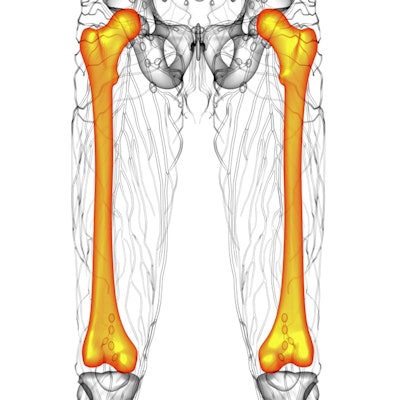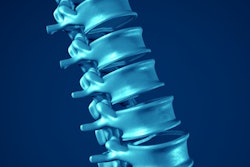
MRI and CT exams illuminate the negative effect a common weight-loss surgery called sleeve gastrectomy has on teenagers' bones, according to research to be presented at the upcoming virtual RSNA 2020 conference.
The study results indicate a need to identify ways to prevent bone loss in children who undergo surgery for obesity, said lead investigator Dr. Miriam Bredella of Harvard Medical School and Massachusetts General Hospital, both in Boston, in a statement released by the RSNA.
"Adolescence is the critical time for bone mass accrual, and any process that interferes with bone accrual during this time can have dire consequences later in life," she said.
Incidence of childhood obesity has worsened over the past decade, Bredella and colleagues noted. Sleeve gastrectomy is the most common type of bariatric surgery performed in children to address the problem: In fact, the number of these procedures performed in children increased 100-fold between 2005 and 2014, the authors wrote. Sleeve gastrectomy involves removing 75% of the stomach, which results in a sleeve-shaped organ rather than a round one.
To explore the effects of the procedure on adolescents' bone health, Bredella and colleagues conducted a study that included 52 teenagers (mean age, 17.5) with moderate to severe obesity. The mean body mass index (BMI) of the study cohort was 45 (a BMI above 30 is considered obese).
Of the 52 patients, 26 had the surgery; the other 26 did not. Before and 12 months after the surgery (or no surgery, for the control group), the patients underwent quantitative CT of the lumbar spine to measure bone mineral density and proton MR spectroscopy to quantify bone marrow fat in the lumbar spine (this fat adjusts to changes in nutrition and can serve as a bone quality biomarker, according to the investigators).
At the one-year follow-up, the children who had the surgery lost on average 75 lbs, while the control group reported no significant weight change. But those who underwent the surgery also had a significant increase in bone marrow fat and a decrease in bone density in the lumbar spine -- the latter attributed in part to a decrease in the weight bearing that strengthens bones that comes with getting lighter, according to Bredella and colleagues.
"Adolescents who underwent sleeve gastrectomy had bone loss and an increase in bone marrow fat, despite marked loss of body fat," Bredella said in the statement. "While weight-loss surgery is successful for weight loss and improving metabolic disorders, it has negative effects on bone."
The surgery can also disrupt adolescents' hormones and their ability to take in nutrients key to bone health, according to Bredella.
"We need to identify mechanisms that will help prevent bone loss in these patients and to make adolescents with obesity more aware of bone health," she said.





















